3. Suppose that a student is testing a water sample for hardness, but has found that the sample is so hard that after emptying the buret once, the endpoint has still not been reached. Other than refilling the buret, which is a technique that should be avoided, what could the student do to perform the experiment more accurately and efficiently for subsequent samples?
3. Suppose that a student is testing a water sample for hardness, but has found that the sample is so hard that after emptying the buret once, the endpoint has still not been reached. Other than refilling the buret, which is a technique that should be avoided, what could the student do to perform the experiment more accurately and efficiently for subsequent samples?
Materials Science And Engineering Properties
1st Edition
ISBN:9781111988609
Author:Charles Gilmore
Publisher:Charles Gilmore
Chapter10: Oxidation, Degradation, Corrosion, Electroprocessing, Batteries, And Fuel Cells
Section: Chapter Questions
Problem 10.1P
Related questions
Concept explainers
Question

Transcribed Image Text:### Experimental Practices in Water Hardness Testing
**Scenario:**
A student is in the process of testing a water sample for hardness. However, they encounter a significant issue: the sample is exceptionally hard. After emptying the buret once, the endpoint has not been reached. Refilling the buret is not suggested as it is considered a poor practice.
**Question:**
What alternative methods can the student employ to perform the experiment more accurately and efficiently for subsequent samples?
**Suggestions for Improvement:**
1. **Dilution of the Sample:**
- The student could dilute the hard water sample with a known volume of distilled water to reduce the concentration of hardness ions.
2. **Use of a Larger Buret:**
- Utilizing a buret with a larger capacity can prevent the need for multiple fillings, thus providing a more continuous titration process.
3. **Pre-Titration Estimate:**
- Conduct a preliminary titration using a small volume of the sample to estimate the amount of titrant needed for the entire sample. This can help in planning the titration process better for the actual experiment.
4. **Incremental Addition of Titrant:**
- Add the titrant in larger, measured increments initially and then switch to smaller increments as the endpoint approaches. This speeds up the process without compromising accuracy.
By considering these methods, the student can achieve more accurate and efficient results in testing water samples for hardness, while avoiding the necessity of refilling the buret frequently.
Expert Solution
This question has been solved!
Explore an expertly crafted, step-by-step solution for a thorough understanding of key concepts.
This is a popular solution!
Trending now
This is a popular solution!
Step by step
Solved in 2 steps

Knowledge Booster
Learn more about
Need a deep-dive on the concept behind this application? Look no further. Learn more about this topic, civil-engineering and related others by exploring similar questions and additional content below.Recommended textbooks for you
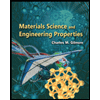
Materials Science And Engineering Properties
Civil Engineering
ISBN:
9781111988609
Author:
Charles Gilmore
Publisher:
Cengage Learning
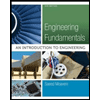
Engineering Fundamentals: An Introduction to Engi…
Civil Engineering
ISBN:
9781305084766
Author:
Saeed Moaveni
Publisher:
Cengage Learning
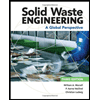
Solid Waste Engineering
Civil Engineering
ISBN:
9781305635203
Author:
Worrell, William A.
Publisher:
Cengage Learning,

Materials Science And Engineering Properties
Civil Engineering
ISBN:
9781111988609
Author:
Charles Gilmore
Publisher:
Cengage Learning

Engineering Fundamentals: An Introduction to Engi…
Civil Engineering
ISBN:
9781305084766
Author:
Saeed Moaveni
Publisher:
Cengage Learning

Solid Waste Engineering
Civil Engineering
ISBN:
9781305635203
Author:
Worrell, William A.
Publisher:
Cengage Learning,
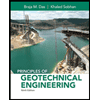
Principles of Geotechnical Engineering (MindTap C…
Civil Engineering
ISBN:
9781305970939
Author:
Braja M. Das, Khaled Sobhan
Publisher:
Cengage Learning
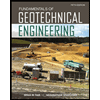
Fundamentals of Geotechnical Engineering (MindTap…
Civil Engineering
ISBN:
9781305635180
Author:
Braja M. Das, Nagaratnam Sivakugan
Publisher:
Cengage Learning

Traffic and Highway Engineering
Civil Engineering
ISBN:
9781305156241
Author:
Garber, Nicholas J.
Publisher:
Cengage Learning